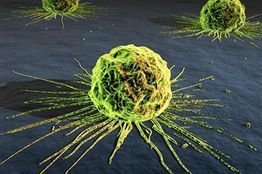
Scientists identify protein complex responsible for gastrointestinal cancers
Singapore: Associate Professor Matthias Ernst and colleagues from Australia's Walter and Eliza Hall Institute have identified a complex of proteins that promotes the growth of some types of colon and gastric cancers, and shown that medications that block the function of this complex have the potential to be developed into a new treatment for these diseases. The research was supported by the Australian National Health and Medical Research Council and the Victorian Government.
The research team found that inflammation-associated gastric and colon cancers showed activation of mTorc1, an aggregate of proteins that signals inside cells to promote growth. Many cancer types depend on mTorc1 activity to grow, and there is considerable interest in the use of mTorc1 inhibitors to treat cancer.
The complex of proteins, known as mTorc1 (mammalian target of rapamycin complex), were previously implicated in the development of some other cancers but this is the first time it has been shown to promote the growth of colon and gastric cancers that are associated with inflammation.
The discovery was made by Dr Ernst along with his colleague Dr Stefan Thiem of the Walter and Eliza Hall Institute's Cell Signalling and Cell Death division and others at the Melbourne-Parkville Branch of the Ludwig Institute for Cancer Research. Associate Professor Ernst is a Ludwig Institute Member.
Associate Professor Ernst said, "We have previously shown that the immune system's inflammatory response can promote the growth of tumours. In the digestive system, persistent inflammatory conditions have been linked with tumour growth: patients who have stomach ulcers or gastritis (inflammation of the stomach lining) are more susceptible to gastric cancer, while inflammation of the colon, called colitis, is associated with an increased risk of developing colon cancer."
.




